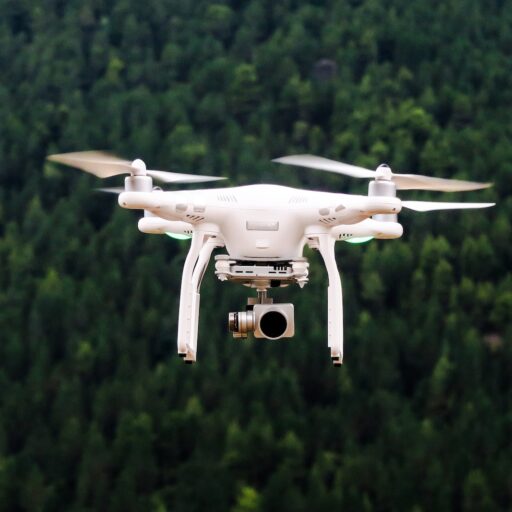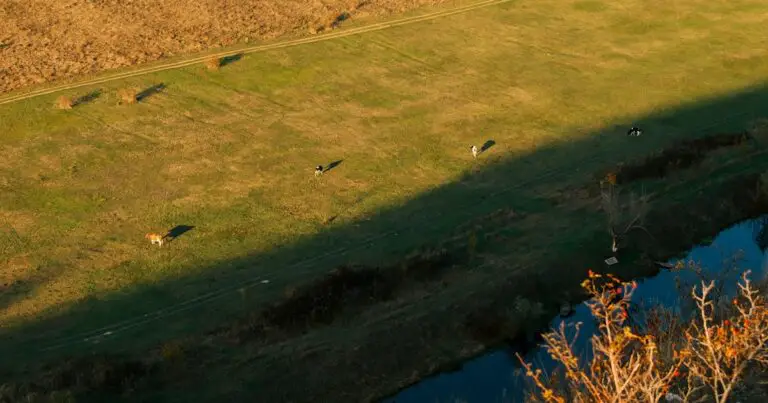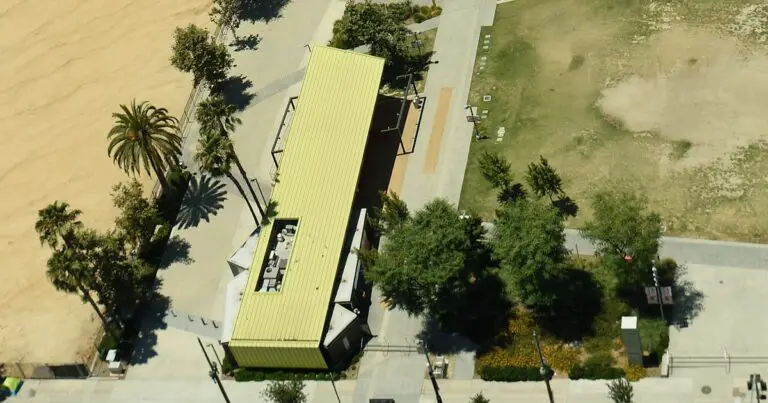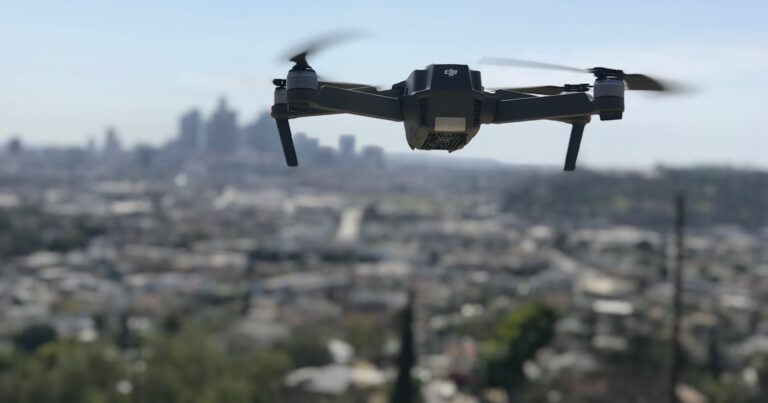Support our educational content for free when you purchase through links on our site. Learn more
Drone Business License: Everything You Need to Know in 2025 🚁
Thinking about turning your drone hobby into a thriving business? You’re not alone. With the drone industry soaring—projected to grow exponentially over the next few years—knowing exactly what licenses and certifications you need is crucial to staying legal and profitable. But here’s the kicker: a “drone business license” isn’t exactly what you might think. It’s not just a simple business permit; it’s a specialized FAA certification that unlocks your ability to fly commercially.
In this comprehensive guide, we’ll clear up the confusion around drone business licenses, break down the FAA Part 107 Remote Pilot Certificate process, and reveal insider tips from our expert pilots at Drone Brands™. Plus, we’ll cover everything from insurance essentials to local regulations and how much you can realistically earn once you’re certified. Stick around—by the end, you’ll be ready to launch your drone business with confidence and clarity!
Key Takeaways
- You need the FAA Part 107 Remote Pilot Certificate to fly drones commercially—this is the core “drone business license” in the U.S.
- The Part 107 certificate is not a traditional business license; you may also need to register your business locally and secure insurance.
- Passing the FAA knowledge test is the main step—but with the right prep, you can get certified in just a few weeks.
- Drone business insurance and local regulations are crucial to protect your investment and stay compliant.
- Commercial drone opportunities are vast, from real estate to agriculture, with earning potential growing as you specialize.
Ready to get certified and take your drone business sky-high? Check out our recommended courses and gear to get started:
- Pilot Institute Part 107 Test Prep: Amazon | Official Site
- DJI Air 3 Drone: Amazon | DJI Official
Table of Contents
- ⚡️ Quick Tips and Facts: Your Fast Track to Drone Business Knowledge
- A Sky-High View: The Evolution of Drone Regulations and Commercial UAS Operations
- Unlocking the Skies: Demystifying the Drone Business License and Pilot Certification
- When Your Drone Takes Flight for Profit: Commercial vs. Recreational Drone Operations
- Your Flight Plan to Success: How to Obtain Your FAA Part 107 Drone License
- The Investment in Your Aerial Empire: Understanding the Costs and Time Commitment for Your FAA Drone License
- Beyond the Certificate: Essential Considerations for Your Drone Business Success
- Soaring Opportunities: What Can You Do with an FAA Part 107 Drone License?
- Ready for Takeoff? Your Journey to Becoming a Certified Commercial Drone Pilot
- Conclusion: Your Drone Business Awaits!
- Recommended Links: Further Resources for Aspiring Drone Entrepreneurs
- FAQ: Your Most Pressing Drone License Questions Answered
- Reference Links: Sources and Official Information
Here at Drone Brands™, we’ve spent countless hours with our hands on the sticks, navigating everything from tight indoor spaces to sweeping mountain vistas. We’ve seen the drone industry explode, and with it, a ton of questions about how to turn this high-flying hobby into a legitimate hustle. The most common question we get? “Do I need a drone business license?”
Well, buckle up, buttercup, because we’re about to take you on a deep dive into the world of commercial drone operations. It’s a journey with a few twists and turns, but trust us, the view from the top is worth it. We’re going to demystify the process, share some of our hard-earned wisdom, and get you on the path to becoming a certified, professional drone pilot.
⚡️ Quick Tips and Facts: Your Fast Track to Drone Business Knowledge
In a hurry to get airborne? Here’s the lowdown, quick and dirty:
- ✅ Yes, you need a license for commercial use. If you’re making money or helping a business in any way with a drone, you need an FAA-issued Remote Pilot Certificate, commonly known as a Part 107 license.
- ❌ It’s not a “business license” in the traditional sense. The Part 107 certificate is a pilot’s license from the FAA. You may still need a separate business license from your city or state to operate legally as a company.
- 📜 The key is the FAA’s Part 107 Aeronautical Knowledge Test. This is the main hurdle. It’s a 60-question, multiple-choice exam that covers everything from airspace rules to weather patterns.
- 💰 Expect to invest a bit. The test itself has a fee, and you’ll likely want a good online training course to prepare. Think of it as your first investment in your new venture.
- ⏳ The process can be quick! With dedicated study, you could be certified in just a few weeks.
- renewing your certification is a breeze. You just need to complete a free online recurrent training course every 24 months.
- 📈 The opportunities are massive. From real estate photography and cinematic filmmaking to infrastructure inspection and agriculture, the demand for skilled drone pilots is soaring. This is one of the most exciting drone business ideas you can pursue right now!
A Sky-High View: The Evolution of Drone Regulations and Commercial UAS Operations
Remember the early days of drones? It was the Wild West! Fliers were buzzing around with little to no oversight. Here at the office, we have some wild stories from back then. But as drones became more powerful and popular, Uncle Sam—specifically, the Federal Aviation Administration (FAA)—realized they needed to create some rules of the road to keep the skies safe for everyone.
This led to the creation of the Small UAS Rule, also known as Part 107 of the Federal Aviation Regulations. This rule, established in 2016, was a game-changer. It created a clear pathway for entrepreneurs and businesses to legally operate drones for commercial purposes. Before Part 107, getting permission for commercial drone work was a complicated, expensive process involving special exemptions. Now, it’s accessible to anyone willing to learn the rules and pass the test. This shift has fueled incredible innovation in the Drone Industry News.
Unlocking the Skies: Demystifying the Drone Business License and Pilot Certification
Let’s clear up the biggest point of confusion right away. When people search for a “drone business license,” they’re almost always looking for information on the FAA’s Remote Pilot Certificate. This is the federal certification that allows you to fly a drone for non-recreational purposes.
As the experts at UAV Coach put it, “You’ll need an FAA-issued Part 107 Certificate to start piloting commercial drone flights for work or business.” It’s the key that unlocks your ability to legally earn money with your drone.
Is a Drone License Truly a “Business License”? Understanding the Nuance of FAA Certification
Here’s a critical distinction we need to make:
- Part 107 Certificate: This is your license to fly commercially. It’s about air safety and proving you know the rules of the sky. It’s issued by the FAA.
- Business License: This is your license to operate a business. It’s about taxes, legal structure, and local commerce rules. It’s typically issued by your city, county, or state.
A user on the Mavic Pilots forum wisely stated, “If you’re going to operate AS a business you should set up AS a business.” This is fantastic advice. While your Part 107 certificate lets you fly for hire, forming an LLC (Limited Liability Company) or another business entity can offer crucial legal and financial protections. It separates your personal assets from your business assets, which is a lifesaver “if you crash or something else bad happens.” We’ll dive deeper into this in our business setup section.
When Your Drone Takes Flight for Profit: Commercial vs. Recreational Drone Operations
So, when do you cross the line from fun-flyer to commercial operator? The FAA’s distinction is surprisingly broad. It’s not just about getting paid. Commercial use is any flight that furthers a business or enterprise.
| Scenario | Recreational or Commercial? | Why? |
|---|---|---|
| Taking photos of a sunset for your personal Instagram | ✅ Recreational | Purely for personal enjoyment. |
| Taking photos of a house for a real estate agent friend (even for free!) | ❌ Commercial | It provides a business (the realtor) with a commercial benefit. |
| Filming a local park to practice your flying skills | ✅ Recreational | For educational and skill-building purposes. |
| Filming that same park to create a promotional video for the city’s tourism board | ❌ Commercial | The flight is in furtherance of an enterprise (the tourism board). |
| Posting monetized videos on YouTube that include drone footage | ❌ Commercial | You are receiving financial compensation. |
The moment your flight’s purpose shifts from pure enjoyment to anything that benefits a business, you’ve entered the commercial realm.
🪁 Flying for Fun: Navigating Recreational Drone Rules and Hobbyist Guidelines
If you’re strictly flying for the sheer joy of it, you don’t need a Part 107 license. However, you still have to follow the FAA’s rules for recreational flyers. The big one is passing The Recreational UAS Safety Test (TRUST). It’s a free, easy online test that covers basic safety principles. Once you pass, you get a certificate you must have on you when flying. You’ll also need to register any drone that weighs over 0.55 pounds (250 grams).
💼 The Professional Path: Embracing the FAA Part 107 Remote Pilot Certificate for Commercial Drone Services
This is the golden ticket. The Part 107 certificate is your gateway to the world of professional drone services. It demonstrates that you have mastered the knowledge required to operate safely within the National Airspace System. As Thimble’s guide notes, failing to get certified for commercial work can lead to “a hefty fine.” And trust us, the FAA doesn’t mess around.
Beyond Part 107: Understanding the Part 61 Certificate for Manned Aircraft Pilots Operating Drones
Are you already a pilot of traditional aircraft like planes or helicopters? Good news! The FAA gives you a slightly different path. If you hold a Part 61 pilot certificate and have a current flight review, you can take a specific online training course instead of the full Part 107 knowledge test to gain your remote pilot privileges. It recognizes that you already have a strong foundation in aeronautical knowledge.
Your Flight Plan to Success: How to Obtain Your FAA Part 107 Drone License
Alright, ready to get certified? We’ve helped countless aspiring pilots through this process. It might seem daunting, but if you break it down, it’s a straightforward flight plan. The excellent video, “Get Your Drone License in 2025: Step-by-Step Guide” by Drone Launch Academy, which is embedded above, offers a fantastic visual walkthrough of this entire process. We highly recommend giving it a watch at #featured-video.
1. Step 1: Eligibility Requirements – Are You Ready to Take Off?
Before you even start studying, let’s make sure you meet the FAA’s criteria. It’s pretty simple:
- You must be at least 16 years old.
- You must be able to read, speak, write, and understand English.
- You must be in a physical and mental condition to safely fly a drone.
That’s it! No prior aviation experience is required.
📚 2. Step 2: Mastering the Aeronautical Knowledge Test – Study Smart, Fly Smarter!
This is the main event. The test consists of 60 multiple-choice questions, and you need to score at least 70% to pass. You’ll have two hours to complete it at an FAA-approved Knowledge Testing Center.
The test covers a wide range of topics, including:
- Regulations: Understanding the rules of Part 107 is paramount.
- Airspace & Requirements: Learning to read sectional charts and identify different classes of airspace (Class B, C, D, E, G) is a huge part of the test.
- Weather: You’ll need to understand how weather affects drone performance and be able to read meteorological reports like METARs and TAFs.
- Loading & Performance: Calculating weight and balance and understanding how they affect your drone’s flight characteristics.
- Operations: Emergency procedures, crew resource management, radio communications, and determining drone performance.
How to Study:
While the FAA provides some free materials, we highly recommend investing in a dedicated online test prep course. These courses are designed specifically to help you pass the Part 107 exam and are worth their weight in gold. They offer structured video lessons, practice questions, and full-length practice exams that simulate the real thing.
Top-Rated Part 107 Test Prep Courses:
- Pilot Institute: Check for courses on Pilot Institute Official Website
- Drone Pilot Ground School: Check for courses on UAV Coach Official Website
- Drone Launch Academy: Check for courses on Drone Launch Academy Official Website
3. Step 3: Applying for Your Remote Pilot Certificate – The Final Approach
Once you’ve passed your test (congratulations!), you’re in the home stretch.
- Get your FAA Tracking Number (FTN): Create a profile on the FAA’s Integrated Airman Certification and Rating Application (IACRA) system to get your FTN before you take the test. You’ll need it to register.
- Complete the Application: After passing, log back into IACRA and fill out Form 8710-13 for a remote pilot certificate.
- Background Check: The Transportation Security Administration (TSA) will conduct a security background check.
- Receive Your Certificate: Once you pass the background check, you’ll receive a temporary certificate via email in about a week, and your permanent plastic card will arrive in the mail a few weeks later.
Maintaining Your Certification: Recurrent Training and Staying Current
Your Part 107 certificate is valid for 24 calendar months. To keep it current, you must complete a free online recurrent training course on the FAA Safety Team (FAASTeam) website. It’s an open-book course that covers any new rules and reinforces key safety concepts. It’s much easier than the initial test!
The Investment in Your Aerial Empire: Understanding the Costs and Time Commitment for Your FAA Drone License
Starting a new venture always involves an investment of time and money. The good news is that getting your Part 107 license is one of the most affordable ways to enter the aviation industry.
| Item | Typical Cost | Notes |
|---|---|---|
| Aeronautical Knowledge Test Fee | Varies by center | As Thimble notes, this fee is set by the testing centers and can vary. |
| Online Test Prep Course | Varies by provider | This is optional but highly recommended for a higher chance of passing on the first try. |
| Drone Registration Fee | $5 per drone | This is required for all drones used for Part 107 operations and must be renewed every three years. |
How Long Does it Take to Become a Certified Drone Pilot?
This largely depends on your study habits and background. We’ve seen dedicated students get certified in as little as one to two weeks. A more common timeframe for someone studying part-time is 3-4 weeks. Most online courses contain about 15-20 hours of material. If you can dedicate an hour or two each day, you’ll be ready for the test in no time.
Beyond the Certificate: Essential Considerations for Your Drone Business Success
Passing the Part 107 test is just the beginning. To run a successful and protected drone business, you need to think beyond the pilot’s certificate. This is where we move from being a pilot to being an entrepreneur. Check out our full guide to Drone Business Opportunities for more ideas.
🛡️ Drone Business Insurance: Protecting Your Assets and Operations
This is non-negotiable. We can’t stress this enough. Flying without insurance is like driving a car without it—a massive, unnecessary risk. As one Mavic Pilots forum member pointed out, “The liability protection of an LLC is not absolute,” and insurance is necessary regardless of your business structure.
Drone insurance typically covers:
- Liability: Protects you against claims of property damage or bodily injury to third parties.
- Hull Insurance: Covers damage to your drone itself.
Many clients, especially larger corporations, will require you to provide a certificate of insurance before they’ll even hire you. Services like SkyWatch.AI or Verifly offer on-demand insurance, allowing you to buy coverage by the hour, day, or month, which is perfect when you’re starting out.
Airspace Authorizations and Waivers: Expanding Your Operational Horizons
Your Part 107 certificate doesn’t give you a free pass to fly anywhere. You are still required to get FAA authorization to fly in controlled airspace (typically around airports).
- LAANC (Low Altitude Authorization and Notification Capability): This is a fantastic system that provides drone pilots with near-instant, automated authorization to fly in controlled airspace at or below approved altitudes. You can access it through apps like Aloft (formerly Kittyhawk) or AirMap.
- Waivers: What if you need to fly beyond the standard Part 107 rules, like flying at night, over people, or from a moving vehicle? For that, you’ll need to apply for a waiver from the FAA through the FAADroneZone portal. This is a more involved process but can open up significant business opportunities.
🌍 Local and State Drone Regulations: Don’t Forget the Ground Rules!
The FAA controls the skies, but states and municipalities can control the ground. Many states, counties, and cities have their own laws regarding where drones can take off and land from (e.g., state parks, city property). Always, always check for local regulations before you fly a mission. A quick search for “[Your State] drone laws” is a great place to start. This is a key part of our Drone Laws and Regulations coverage.
Setting Up Your Drone Business: Legal Structures and Best Practices for Drone Entrepreneurs
As discussed earlier, separating your personal and business finances and liability is crucial.
- Sole Proprietorship: The simplest structure. You and the business are one and the same. It’s easy to set up but offers no liability protection.
- LLC (Limited Liability Company): The most popular choice for small businesses. It provides a legal shield between your personal assets (house, car) and your business debts and lawsuits. As the Mavic Pilots discussion highlights, it makes you “look more professional” and allows for a separate business bank account, which simplifies tracking expenses for tax write-offs.
We strongly advise consulting with an accountant or a small business lawyer to decide which structure is right for you. They can provide guidance tailored to your specific situation and location.
Soaring Opportunities: What Can You Do with an FAA Part 107 Drone License?
So you’ve got the certificate, the insurance, and the business is set up. Now for the fun part! The applications for commercial drone services are exploding. Here are just a few of the industries hungry for certified pilots:
- Real Estate Photography & Videography: A staple for many drone businesses.
- Construction & Development: Site progression monitoring, mapping, and inspections.
- Roofing & Insurance Inspections: Safely assess damage without climbing a ladder.
- Cinematic & Commercial Filmmaking: Adding epic aerial shots to productions.
- Wedding & Event Videography: Capturing unforgettable moments from a unique perspective.
- Agriculture: Crop monitoring and analysis.
- Cell Tower & Power Line Inspection: A safer, faster way to inspect critical infrastructure.
- 3D Mapping & Surveying: Creating detailed topographical maps and models.
The sky is, quite literally, the limit! Whether you’re flying a versatile prosumer drone like the DJI Air 3 or a heavy-duty industrial rig, there’s a market for your skills.
💰 Unlocking Earning Potential: How Much Can a Commercial Drone Pilot Make?
This is the million-dollar question, isn’t it? The answer varies wildly based on your location, skill level, specialization, and marketing prowess.
- Entry-Level/Part-Time: Pilots just starting out, often doing real estate gigs, might charge per project.
- Experienced Professional: Full-time pilots with a strong portfolio and specialized skills (like thermal imaging or LiDAR) can command significantly higher rates.
- Full-Fledged Agency: Running a business with multiple pilots and services can lead to a six-figure income.
Your income is directly tied to the value you provide. A simple real estate photo shoot will pay less than a complex 3D mapping project for a large construction firm. The key is to find a niche, hone your skills, and market yourself effectively.
Ready for Takeoff? Your Journey to Becoming a Certified Commercial Drone Pilot
We’ve thrown a lot of information at you, from FAA regulations and business structures to insurance and market opportunities. Feeling a little overwhelmed? Don’t be. Every single one of us at Drone Brands™ started exactly where you are now—with a passion for flight and a desire to turn it into something more.
Getting your Part 107 Remote Pilot Certificate is the single most important step you can take. It’s your license to learn, to earn, and to join a thriving community of aerial professionals. It’s a challenging but incredibly rewarding process. So, are you ready to take that first step and launch your own drone business?
Conclusion: Your Drone Business Awaits!
Wow, what a flight path we’ve charted together! From clearing up the confusion around the elusive “drone business license” to breaking down the FAA Part 107 certification process, and even exploring the nuts and bolts of setting up your drone business, we hope you’re feeling ready to take off.
Here’s the bottom line: The FAA Part 107 Remote Pilot Certificate is your official ticket to legally fly drones for commercial purposes in the U.S. But remember, this certificate isn’t a business license in the traditional sense. To truly operate as a business, you’ll want to consider forming an LLC or another legal structure, securing proper insurance, and complying with local and state regulations.
We know the process can seem overwhelming at first—studying for the knowledge test, navigating FAA systems, and understanding legal requirements—but trust us, the rewards are sky-high. Whether you’re aiming to capture breathtaking real estate shots, inspect infrastructure, or launch a full-service aerial cinematography company, the drone industry is booming with opportunity.
So, are you ready to join the ranks of certified commercial drone pilots and turn your passion into profit? The sky is waiting, and your drone business awaits lift-off! 🚀
Recommended Links: Further Resources for Aspiring Drone Entrepreneurs
Ready to gear up and get certified? Here are some top resources and products we recommend:
-
Pilot Institute Part 107 Test Prep Course:
Amazon Search: Pilot Institute Part 107 | Pilot Institute Official Website -
Drone Pilot Ground School:
Amazon Search: Drone Pilot Ground School | Drone Pilot Ground School Official Website -
Drone Launch Academy Part 107 Prep:
Amazon Search: Drone Launch Academy Part 107 | Drone Launch Academy Official Website -
DJI Air 3 Drone (Recommended for Commercial Use):
Amazon Search: DJI Air 3 | DJI Official Website -
SkyWatch.AI Drone Insurance:
SkyWatch.AI Official Website -
Thimble General Liability Insurance for Drone Operators:
Thimble Insurance -
FAA Integrated Airman Certification and Rating Application (IACRA):
FAA IACRA Portal -
FAA Part 107 Remote Pilot Study Guide (Book):
FAA Part 107 Test Prep Book on Amazon
FAQ: Your Most Pressing Drone License Questions Answered
Do I need a license to operate a drone for business purposes?
Yes! If you’re flying your drone for any commercial purpose—meaning any activity that furthers a business or generates revenue—you must have the FAA’s Part 107 Remote Pilot Certificate. Flying without it can result in hefty fines and legal trouble. This certification proves you understand the rules and safety requirements for operating drones in the National Airspace System.
What are the steps to obtain a drone business license?
The key steps to get your FAA Part 107 Remote Pilot Certificate are:
- Meet eligibility requirements: Be at least 16 years old, able to read and speak English, and physically fit to fly.
- Pass the Aeronautical Knowledge Test: A 60-question exam covering regulations, airspace, weather, and operations.
- Apply through IACRA: Submit your application and undergo a TSA security background check.
- Receive your certificate: After approval, you get a temporary certificate via email and the permanent one by mail.
Remember, this certificate is your pilot license, not a business license. You may also need to register your business with local authorities and obtain any required business licenses or permits.
How much does a drone business license cost?
The main costs include:
- Aeronautical Knowledge Test Fee: Varies by testing center, typically around $150.
- Test Prep Course: Optional but recommended; prices vary widely.
- Drone Registration: $5 per drone, renewed every three years.
- Business Setup Costs: If you form an LLC or other entity, expect fees for registration and possibly legal or accounting advice.
- Insurance: Varies depending on coverage, but essential for protecting your business.
Can I use a recreational drone for commercial aerial photography?
Technically, yes, but only if you have the Part 107 certificate and follow all commercial regulations. The drone itself doesn’t need to be a commercial-grade model, but your operations must comply with FAA rules for commercial use. Many pros recommend investing in drones designed for professional use, like the DJI Air 3, for better reliability and features.
What regulations apply to drone businesses in the United States?
Drone businesses must comply with:
- FAA Part 107 Rules: Governing commercial drone operations nationwide.
- Local and State Laws: These can include restrictions on where you can fly, privacy laws, and business licensing requirements.
- Airspace Authorizations: Required for flying in controlled airspace near airports.
- Waivers: Needed for operations beyond standard Part 107 limits (e.g., night flights, flying over people).
Always check the latest FAA updates and local regulations before flying.
Do I need insurance for my drone business license?
While not legally required by the FAA, insurance is highly recommended and often required by clients. It protects you from liability in case of accidents, property damage, or bodily injury. General liability and hull insurance are common policies for drone operators. Services like SkyWatch.AI and Thimble offer flexible insurance plans tailored for drone pilots.
How do I renew or maintain my drone business license?
Your Part 107 certificate is valid for 24 months. To renew:
- Complete the FAA’s free recurrent online training course via the FAA Safety Team (FAASTeam).
- No retesting is required unless you let your certificate lapse.
- Stay current with any regulatory changes and maintain your knowledge to operate safely.
Reference Links: Sources and Official Information
- Federal Aviation Administration (FAA) – Part 107 Small UAS Rule
- FAA Integrated Airman Certification and Rating Application (IACRA) – IACRA Portal
- FAA Safety Team (FAASTeam) – Recurrent Training
- UAV Coach – How to Get Your Drone Certification
- Mavic Pilots Forum – Business License vs. Part 107 Discussion
- Thimble – Drone Photography License Guide
- FAA DroneZone – Waivers and Authorizations
- SkyWatch.AI – Drone Insurance
- DJI – DJI Air 3 Drone
Ready to launch your drone business? Check out our full Drone Business Opportunities section for more tips and inspiration!






